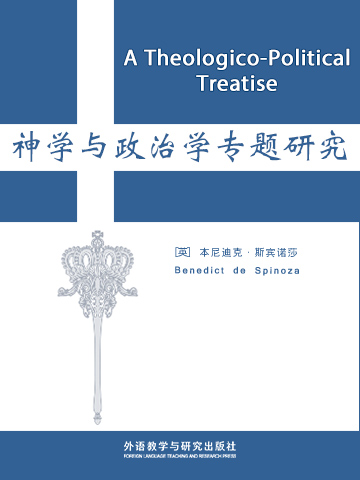本书是十七世纪荷兰杰出的唯物主义哲学家和无神论者斯宾诺莎的主要著作之一。
作者用本书与教会进行了尖锐的斗争。与当时的神学家们援引各种“奇迹”以证明《圣经》的神圣性相对立,作者在历史上第一次提出:研究《圣经》只能以《圣经》本身为根据,既探讨圣书各卷的作者是谁,他们是在什么条件下写的,以及为何而作等等。作者用这种方法在本书中对于《圣经》进行了详细的考证,从而驳倒了神学家们的各种神秘的说教,摧毁了教会统治。
作者认为有时国家是坚持绝对的国家主权的。但是主要是根据自己对基督教会的坚决的反对来掌控的。尽管他已准备好支持国家宗教,作为精神上的粘合剂,但是他对宗教如此的描写使得宗教可以被它的拥护者、自然神论者以及泛神论者所接受,如果这些人不是狂热的信仰者或非信仰者的话。此书的重点是在言论自由,作者相信有绝对权威的政府应该有效地抵御好战教会的专横。
Spinoza sometimes writes as if the state upheld absolute sovereignty. But that is due mainly to his determined opposition to every kind of ecclesiastical control over it. Though he is prepared to support what may be called a state religion, as a kind of spiritual cement, yet his account of this religion is such as to make it acceptable to the adherents of any one of the historic creeds, to deists, pantheists and all others, provided they are not fanatical believers or unbelievers. It is really in the interest of freedom of thought and speech that Spinoza would entrust the civil government with something approaching absolute sovereignty in order to effectively resist the tyranny of the militant churches
- Part I Chapters I to V
- Part II Chapters VI to X
- Part III Chapters XI to XV
- Part IV Chapters XVI to XX
- 书评 写书评
- 笔记
-
书评加载中...






















 京公网安备 11010802032529号
京公网安备 11010802032529号
笔记加载中...